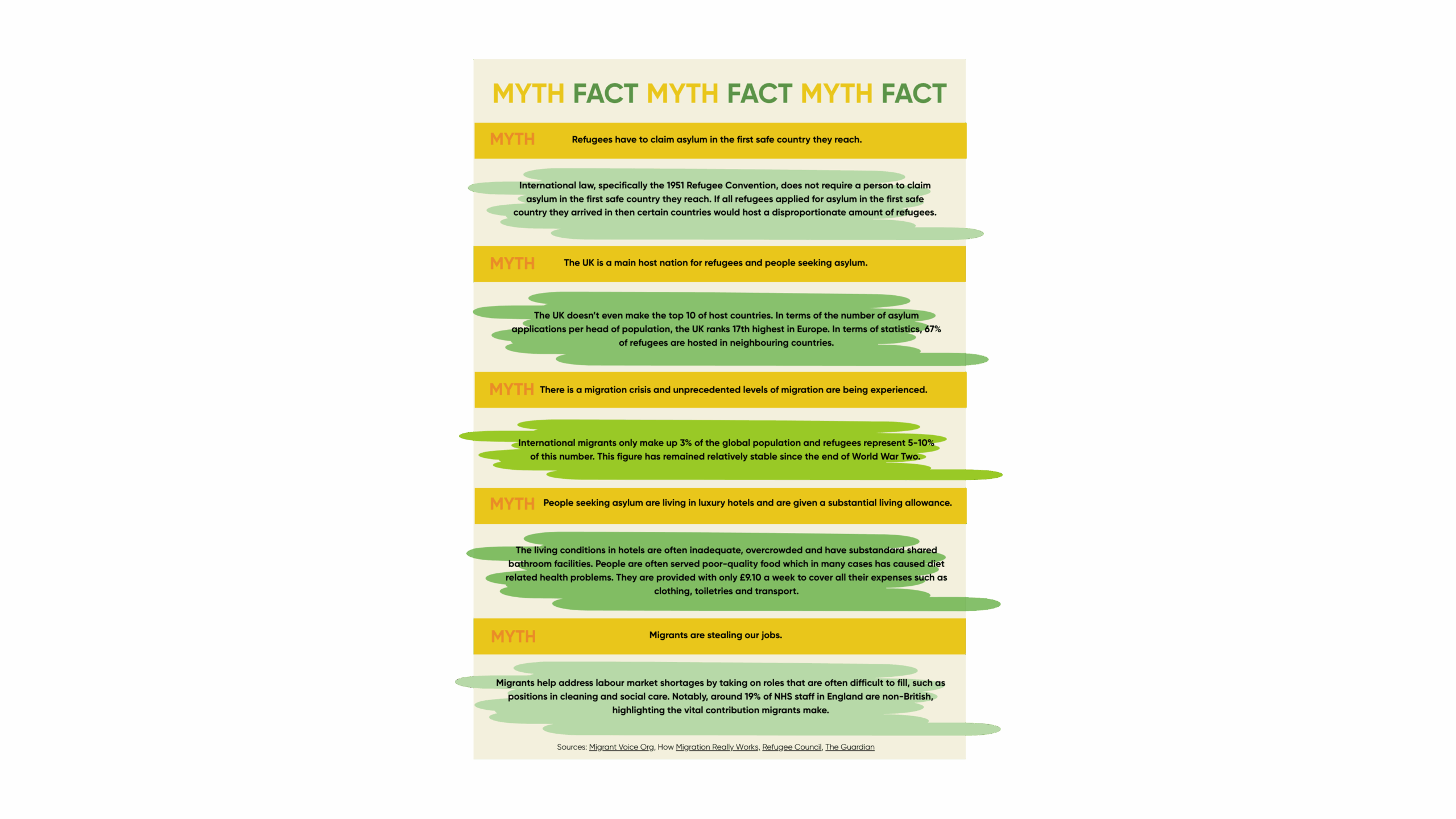Here are some useful facts about Refugees and people seeking asylum in the UK

Definitions
Refugee
“A person who owing to a well-founded fear of being persecuted for reasons of race, religion, nationality, membership of a particular social group or political opinion, is outside the country of his nationality and is unable or, owing to such fear, is unwilling to avail himself of the protection of that country; or who, not having a nationality and being outside the country of his former habitual residence as a result of such events, is unable or, owing to such fear, is unwilling to return to it.”
In the UK, a person is granted refugee status when the Home Office decides that an individual meets this definition.
Refugee status means that:
- The person can stay in the UK for at least 5 years
- They can work, study, and access healthcare
- After 5 years, they can apply to stay permanently
Person seeking asylum
A person seeking asylum is someone who has left their country of origin and applied for asylum in another country and is waiting on a decision for their application.
Article 14 of the 1948 Universal Declaration of Human Rights states that everyone has the right to seek and to enjoy in other countries asylum from persecution
People seeking asylum do not have the same rights as a refugee or a British citizen, for example they are generally not allowed to work, and they may have restrictions on the type of accommodation and financial support they receive.
Migrants
There is no universally agreed definition of migrant under international law. It tends to refer to an individual who has moved away from their usual place of residence, temporarily or permanently, and for a variety of reasons.
Challenges faced by refugees and people seeking asylum in the UK and how we support them
- Lack of legal support
The lengthy and complicated asylum process in the UK, further complicated by the asylum backlog, can leave refugees and people seeking asylum in limbo.
RSG seeks to alleviate these obstacles by offering individuals IAA-accredited legal advice and information on legal matters, welfare, and benefits.
- Integration
Due to various integration challenges, for example cultural, language and employment barriers, many refugees and people seeking asylum feel isolated. Coupled with the trauma of displacement and the uncertainty of their future, this can trigger mental health issues, accompanied by feelings of hopelessness, fear, and loneliness.
RSG assists in supporting integration by organising weekly drop-in sessions, during which individuals can meet other people, connect with various organisations and resources, and partake in social activities.
- English
Refugees and people seeking asylum face English language barriers due to a combination of factors, for example disruption to education due to displacement, limited access to resources, and a lack of tailored support. Consequently, this can impact their access to the job market, accessing healthcare, navigating daily life, and building social connections.
RSG assists in helping refugees and people seeking asylum to overcome this barrier by offering English lessons during their weekly drop ins, as well as assisting them in accessing education
